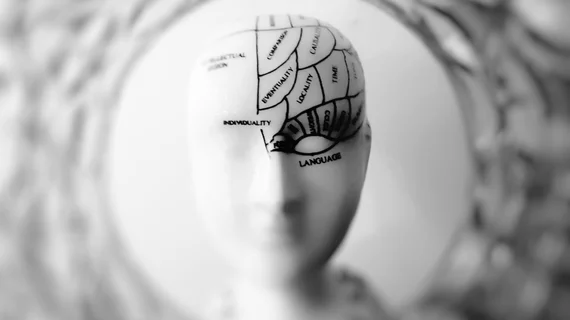With AI, researchers predict which brains are straying from a healthy neurological pathway
A newly developed artificial intelligence tool can predict a patient's brain age and determine if they are straying away from a healthy neurological path, according to research published Wednesday.
Amnestic mild cognitive impairment (aMCI) is a transition period between normal aging and Alzheimer’s disease. Those with the condition have memory issues more serious than is typical for their age, but not critical enough to impact daily life.
Beijing researchers developed a machine learning model to predict brain age and quantify individual deviations from normal neurological aging, they explained in Radiology: Artificial Intelligence. With this new tool, they hope to spot early signs of cognitive impairment.
“The predictive model we generated was highly accurate at estimating chronological age in healthy participants based on only the appearance of MRI scans,” Ni Shu, PhD, from State Key Laboratory of Cognitive Neuroscience and Learning at Beijing Normal University, and co-authors said in a statement. “In contrast, for aMCI, the model estimated brain age to be greater than 2.7 years older on average than the patient’s chronological age.”
The team trained their tool on T1-weighted MRI scans from 974 healthy adults between ages 49 and 95. They then applied that model to predict age differences between 80 aMCI patients and 616 controls. Another 589 healthy patients and 144 with aMCI were also analyzed.
Predicted age difference, the team explained, was “significantly” associated with cognitive impairment in those with aMCI across several traits, including memory, attention, and “executive function.”
Furthermore, patients with progressive aMCI strayed further from normal brain aging compared to individuals with stable cognitive impairment.
Combining this age difference with other biomarkers of Alzheimer’s proved to best predict progressive aMCI from stable patients.
“This work indicates that predicted age difference has the potential to be a robust, reliable and computerized biomarker for early diagnosis of cognitive impairment and monitoring response to treatment,” the authors concluded.
Read the full study here.

